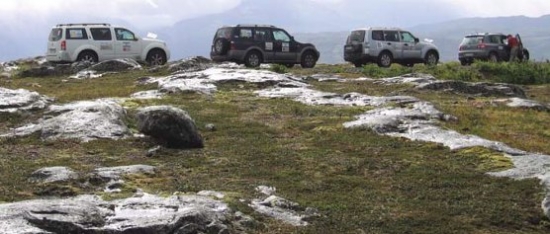
Photos by Daphne Goldman
During this past sizzling hot Israeli summer, our daughter Daphne announced, “I’m crossing Lapland in a jeep”. “No! Surely you are kidding,” I responded. “Really, I am” she answered,
The history of this pronouncement is that while she was away attending a conference overseas, her husband, wishing to greet her with a surprise upon her return, had registered her for a ‘Desert Queen’ trip that he saw posted, and thought would provide her with a unique experience.
Curious to know more about this, I’ve since learned that Desert Queen trips are 4WD jeep, convoy style driving trips for women exclusively. Such trips have taken place around the globe in various places for a number of years. They take place in exotic locations and cross difficult terrains. Participants go as teams and are selected for ability to meet the many challenges. Other than general locations, exact itineraries are known to the groups only on a day to day basis. Tasks to be carried out on the trip are an integral part of the program and are assigned to individuals and the teams, so they can be planned for prior to leaving. These trips are competitive, outdoor adventures that tend to foster bonds and challenge the women on their own and as part of a group.
In 2008, Jewish women from around the globe joined Israeli women on the first ‘Desert Queen’ expedition to take place in Israel. This trip was held in honor of Israel’s 60th birthday, and was co-sponsored by the Jewish Agency Partnership 2000 Program and the Israel Geographic Society.
The Lapland trip that Daphne had been selected to participate in was for Israeli women only, and all aspects of this trip were organized and determined by the Israel Geographic Society.
Good health, proper registration requirements fulfilled, a valid driving license, payment and participating in and passing the selection process to determine if one is up to the challenges to be met, are prerequisites for participation.
Prior to the trip, over 1000 Israeli women gathered in the Ben Shemen Forest for the selection process. Here, Daphne related that she was confronted with a variety of first time physical challenges, as well as participating in group dynamics and conflict-resolving situations, and it was an interesting experience.
In August 2010, 48 Israeli women, ages 23-68, plus staff, left Israel and flew to Kemi, Finland. Just a few hours away by bus and already above the Arctic Circle, they picked up their jeeps. Fourteen of them, twelve for the participants, an administrative jeep with a medical doctor, administrator, guide and social director aboard, a ‘Honey Jeep’, winners of the previous years' vote as ‘most deserving’ and a truck with a mechanic, food supplies and food coordinator.
A 58 year old retired vice-principal of a school, a fortyish year old widow with two children who is a swim therapist and a CUD nurse were Daphne’s jeep-mates. In her fifties, Daphne is an academic environmental educator. The grouping of the women was determined by the trip coordinators, based on information provided by the participants.
One of the five major circles of latitude that map the Earth, 660 33’ north of the Equator, defines the Arctic Circle. Lapland is a vast, sparsely populated region that lies north of this. It extends from the western shores of Norway, north and eastwards through parts of Sweden, Finland and Russia. It is the land of summer midnight sun and long, dark, polar winter nights.
Excepting Russia, this trip traversed through various parts of the area, following a circular route that took them north and westwards, from Finland, through a small portion of Swedish Lapland, and onto Norway. Traveling days and sometimes at night in order to reach a destination, they averaged 300 kilometers per day. The region is native Sami territory where reindeer-herding is the major industry. They saw lots of reindeer, but no traditional Sami. They traveled through wide open spaces, past mountain springs, lakes, and forests. The wild life that exists there is shy of any human population, so they did not see much of that, however there was magnificent whale-watching along the coast of Norway. A few nights were spent sleeping in tents out in the open. Temperatures averaged about 80C .They encountered rain and snow. Appropriate clothing was provided by the organization. Food was healthy and simple, most often eaten camp-style at rest and camping points. On the trip back to Kemi, where they were to fly home, the convoy was driving off highways across the Arctic tundra. This is beautiful and desolate landscape that is typical of Arctic regions, characterized by undulating treeless plains, made up of a thick, mucky soil on top of a frozen subsoil that supports the growth of moss and lichen, which are the source of food for the reindeer. It presented challenging driving.
Maintaining jeep position in the convoy, fixing flats and breakdowns, long lines when starting the day's drive, and at filling stations, being tolerant of each other's driving and personality styles and of others who are total strangers before the trip, tiredness, overcoming tensions that do arise as well as the physical discomforts encountered are all to be contended with. Coffee breaks, meals together, evenings of entertainment, group games, and getting-to-know-you activities, as well as continual communication and changing jeeps from time to time, break down barriers between the women and create bonding from the shared experience. This trip lasted nine days.
Having seen the wilds and beauty of Lapland and the large expanses of unspoiled space, and having breathed the clean air and experienced the quiet Daphne thinks is enough to entice her to return with her husband to the region some day.
Regarding the social aspect of this trip, “It was quite an experience. I had the opportunity to meet other Israeli women from around the country, from different backgrounds and social circles that I probably would never have met in my life. I was confronted with situations in which I learned things about myself that I was not aware of. Even in this short period of time most of us bonded and share enough common professional and social interests to feel maybe we can do something together to benefit the community, so from time to time we are meeting and discussing this. Thanks to my dear husband who wanted to surprise ‘his queen,’ it was an experience that I would not have missed”.
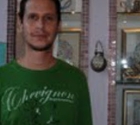 AMIT DRESSLER - HELPING THE LESS FORTUNATE
AMIT DRESSLER - HELPING THE LESS FORTUNATE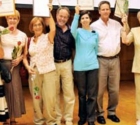 ESRA VOLUNTEER AWARD WINNERS 2010
ESRA VOLUNTEER AWARD WINNERS 2010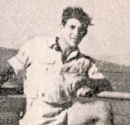 FACT OVERWHELMS FICTION
FACT OVERWHELMS FICTION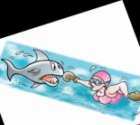 A Matter of Perspective
A Matter of Perspective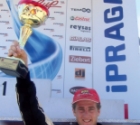 A fantastic motor sport adventure – a dream come true
A fantastic motor sport adventure – a dream come true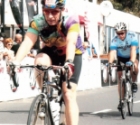 my sporting year 2007
my sporting year 2007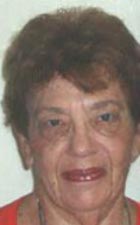 Joan Frankenthal
Joan Frankenthal